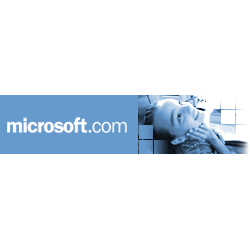Microsoft Private Folder 1.0 withdrawn after user backlash
Concerns around manageability, data recovery and encryption force software giant to pull password-protected private folder


Less than two weeks after its launch, Microsoft has had to axe its Private Folder 1.0 amid concerns about data ownership and encryption.
When launched the free download was touted by Microsoft as 'a utility that limits access to selected files by other people that you trust and share your computer with...With this tool, you will get one password protected folder called My Private Folder in your account to save your personal files.'
Microsoft openly admitted that it would not be held responsible for lost files, nor would it offer support in password cracking or retrieval efforts, causing alarm bells to ring for many IT departments.
A discussion thread posted on MSBLOG before Private Folder 1.0 was withdrawn showed mixed reactions to its arrival.
"From an administrator point of view this is a BAD NEWS. If any tool is available for users to protect information is [Sic] should be necessarily managed by the system administrator. If not, the user information is its own property and does not belong to the company anymore. The general rule is that information stored in company servers and PCs belong to the company not to the user. So this tool need[s] to have a back door accessible for the domain administrator," said one entry posted on 15 July.
The software giant reacted to these concerns by pulling the folder. A statement issued by Microsoft said:
"Private Folder 1.0 was designed as a benefit for customers running genuine Windows. However, we received feedback about concerns around manageability, data recovery and encryption, and based on that feedback we are removing the application."
Sign up today and you will receive a free copy of our Future Focus 2025 report - the leading guidance on AI, cybersecurity and other IT challenges as per 700+ senior executives
Although a Microsoft spokesperson was unable to clarify whether the application had been removed indefinitely or if there are plans to re-launch it after additional refinement.
1) Full disc encryption (mainly for protecting information on laptops if they are stolen),
2) Folder level encryption, covering topics or work areas,
3) Document level encryption (part of Windows Rights Management).
Maggie has been a journalist since 1999, starting her career as an editorial assistant on then-weekly magazine Computing, before working her way up to senior reporter level. In 2006, just weeks before ITPro was launched, Maggie joined Dennis Publishing as a reporter. Having worked her way up to editor of ITPro, she was appointed group editor of CloudPro and ITPro in April 2012. She became the editorial director and took responsibility for ChannelPro, in 2016.
Her areas of particular interest, aside from cloud, include management and C-level issues, the business value of technology, green and environmental issues and careers to name but a few.
-
 Salesforce announces huge partner program revamp with Agentforce 360 launch
Salesforce announces huge partner program revamp with Agentforce 360 launchNews Salesforce has announced the formal launch of Agentforce 360, a new platform designed to help channel partners drive recurring revenue through AI agents and applications.
-
 Get ready for the rise of 'vibe crime'
Get ready for the rise of 'vibe crime'News Trend Micro is warning of a boom in 'vibe crime' - the use of agentic AI to support fully-automated cyber criminal operations and accelerate attacks.
